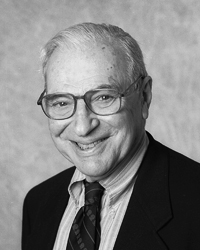in Lives of the Literature, edited by William Breit and Barry T. Hirsch
1970s-1980s
Кеннет Эрроу: Цитаты на английском языке
Kenneth Arrow, “The Organization of Economic Activity: Issues Pertinent to the Choice of Market versus Non-market Allocation” (1969)
1950s-1960s
Источник: 1970s-1980s, The Economics of Information (1984), p. 55
Источник: 1970s-1980s, The Economics of Information (1984), p. 55
from Kenneth J. Arrow" http://www.pkarchive.org/cranks/Brian.html"Letter (1998)
1970s-1980s
Источник: 1970s-1980s, The Limits Of Organization (1974), Chapter 2, Organization And Information, p. 33
Источник: 1970s-1980s, The Limits Of Organization (1974), Chapter 1, Rationality: Individual And Social, p. 23
Источник: 1950s-1960s, Social Choice and Individual Values (1951), p. 85
Источник: 1950s-1960s, Social Choice and Individual Values (1951), p. 7
1970s-1980s, "Rationality of Self and Others in an Economic System", 1986
Источник: 1950s-1960s, Social Choice and Individual Values (1951), p. 83
Источник: 1970s-1980s, The Limits Of Organization (1974), Chapter 1, Rationality: Individual And Social, p. 29
Kenneth Arrow, "Methodological Individualism and Social Knowledge", American Economic Review (1994)
1970s-1980s
Источник: 1950s-1960s, "Existence of an equilibrium for a competitive economy." 1954, p. 265
Источник: 1970s-1980s, The Limits Of Organization (1974), Chapter 4, Authority And Responsibility, p. 65
1970s-1980s, "Rationality of Self and Others in an Economic System", 1986
Источник: 1950s-1960s, Social Choice and Individual Values (1951), p. 85 as cited in: Gerry Mackie (2006) "The Reception of Social Choice Theory By Democratic Theory".
Источник: 1950s-1960s, "Existence of an equilibrium for a competitive economy." 1954, p. 265
Kenneth Arrow, "Uncertainty and The Welfare Economics of Medical Care", The American Economic Review(1953)
1950s-1960s
Источник: 1970s-1980s, The Limits Of Organization (1974), Chapter 1, Rationality: Individual And Social, p. 26
Источник: 1970s-1980s, The Limits Of Organization (1974), Chapter 1, Rationality: Individual And Social, p. 16
Arrow (1984) "November 1984 lecture at Trinity University". Lecture presented November 5, 1984.
1970s-1980s
“The Austrian a priori dogmatism (von Mises, especially; Hayek, to a lesser degree).”
on question "In your mind, what has been the most misleading theoretical approach in economics?", in Karen Ilse Horn (ed.) Roads to Wisdom, Conversations With Ten Nobel Laureates in Economics (2009)
New millennium
Источник: 1970s-1980s, The Limits Of Organization (1974), Chapter 1, Rationality: Individual And Social, p. 25
Kenneth J. Arrow (1962). "Economic Welfare and the Allocation of Resources for Invention." In: The Rate and Direction of Inventive Activity. Princeton University Press.; cited in: Thrainn Eggertsson, Economic behavior and institutions. 1990. p. 22
1950s-1960s
Источник: 1970s-1980s, The Limits Of Organization (1974), Chapter 2, Organization And Information, p. 34
in Karen Ilse Horn (ed.) Roads to Wisdom, Conversations With Ten Nobel Laureates in Economics (2009)
New millennium
1970s-1980s, "Rationality of Self and Others in an Economic System", 1986
Arrow and Hicks (1972) From Nobel Lectures, Economics 1969-1980, Editor Assar Lindbeck, World Scientific Publishing Co., Singapore, 1992 ( online http://www.nobelprize.org/nobel_prizes/economics/laureates/1972/presentation-speech.html)
1970s-1980s
Arrow (1984) "November 1984 lecture at Trinity University". Lecture presented November 5, 1984.
1970s-1980s
